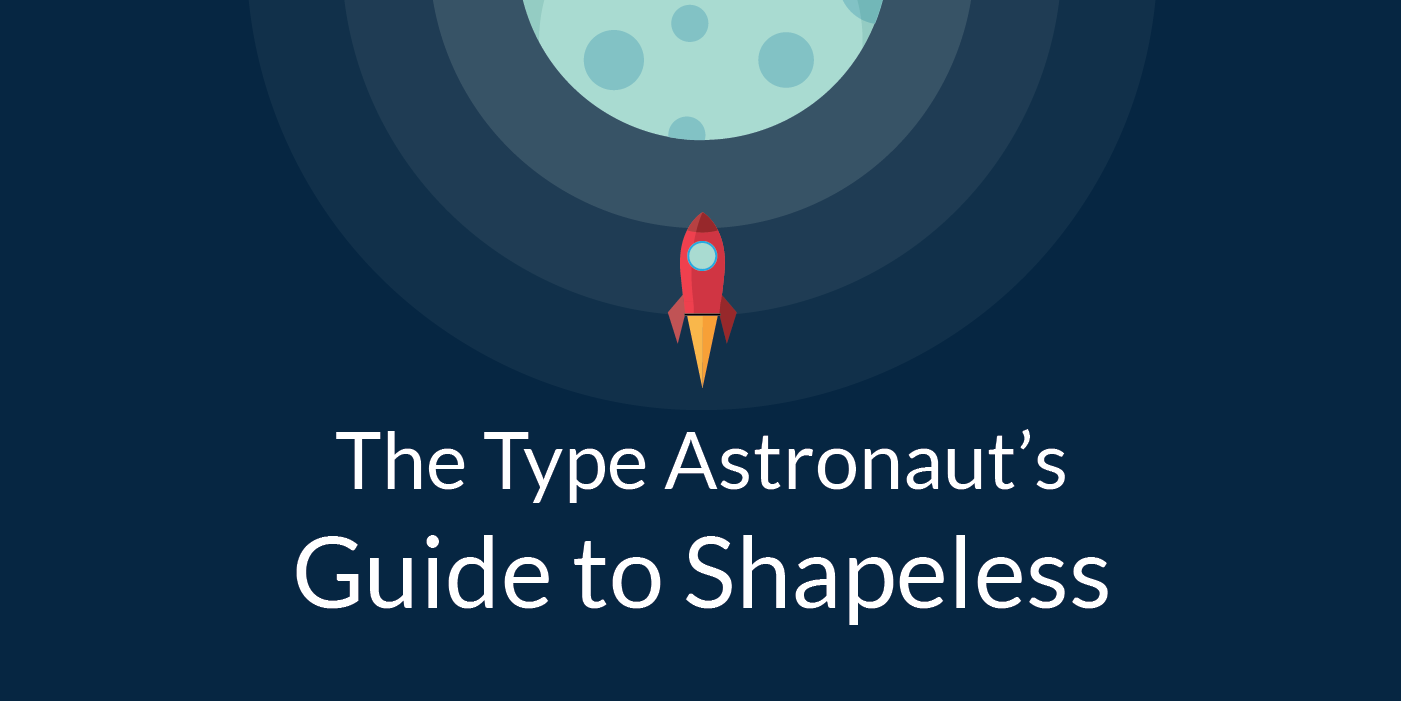Meta-program and/or shapeless all the things!
Chris Birchall
ScalaMatsuri
25th Feb 2017

We're hiring!
Programming
Program
Data
Data
Side effects
副作用
データ
データ
プログラム
Metaprogramming
Program
Program
Side effects
Program
プログラム
プログラム
副作用
プログラム
Scala macro
-
Function that runs at compile time
-
Input and output are trees (ASTs)
foo.bar()Apply
Select
Ident
TermName("foo")
TermName("bar")
List()
=
コンパイル時に呼ばれる関数
入力・出力は抽象構文木
Hello World
Let's write a macro that doesn't do anything!
何もしないマクロを書いてみよう!
Level up
Pattern matching and code generation using quasiquotes
準クォートによるパターンマッチとコード生成

"Stop using macros because they are going away.
I'm not kidding!"
マクロをやめなさい。そのうちなくなるからね。
うそじゃないよ!
scala.meta
Syntactic API
- Tokens
- Syntax trees
- Quasiquotes
- Available now
scala> import scala.meta._
import scala.meta._
scala> val tree = q"val x = 1"
tree: meta.Defn.Val = val x = 1
scala> tree.show[Structure]
res0: String = Defn.Val(Nil, Seq(Pat.Var.Term(Term.Name("x"))), ...リリース済み
実装中
名前解決
型検査
準クォート
構文木
トークン
meta paradise
inline/meta
- inline keyword replaces @inline annotation
- meta demarcates code that executes at compile time
- See SIP-28 & 29 for the gory details
- inline は既存の @inline アノテーションの代わり
- meta はコンパイル時に走るコードを示す
- 超マニアックな詳細は SIP-28, SIP-29 へ
Typechecked Mustache
Hello {{firstName}}!
The weather is {{weather}} today.case class Context(firstName: String, weather: String)goal
Typechecked Mustache
- Load a Mustache template
- Parse it to find all the {{placeholders}}
- Generate a corresponding case class
該当する case class を生成する
テンプレートを読み込む
パースして変数名を列挙する
At compile time:
tutorial
Spectrum of Scala developer happiness
joy
misery
大吉
大凶
Spectrum of Scala developer happiness
joy
misery
write some boilerplate code
大吉
大凶
ボイラープレートコードを書く
Spectrum of Scala developer happiness
joy
misery
write some boilerplate code
use runtime reflection
大吉
大凶
ランタイム・リフレクションを使う
Spectrum of Scala developer happiness
joy
misery
write some boilerplate code
use runtime reflection
generate source code
大吉
大凶
ソースコード生成
Spectrum of Scala developer happiness
joy
misery
write some boilerplate code
use runtime reflection
generate source code
write a macro
大吉
大凶
マクロを書く
Spectrum of Scala developer happiness
joy
misery
write some boilerplate code
use runtime reflection
generate source code
write a macro
let Miles write the macro for you
大吉
大凶
マクロをMilesさんに書いてもらう
shapeless
case class Person(name: String, age: Int)String :: Int :: HNil("name", String) :: ("age", Int) :: HNilGeneric
LabelledGeneric
Convert case class to Map
goal
case class Foo(wow: String, yeah: Int)
val instance = Foo("hello", 123)
val map: Map[String, Any] = caseClassToMap(instance)
println(map) // Map(wow -> hello, yeah -> 123)Convert case class to Map
with a macro
import scala.language.experimental.macros
import scala.reflect.macros.blackbox.Context
def caseClassToMap[A](a: A): Map[String, Any] =
macro impl[A]
def impl[A: c.WeakTypeTag](c: Context)(a: c.Tree): c.Tree = {
import c.universe._
val A = weakTypeOf[A]
if (!(A.typeSymbol.isClass && A.typeSymbol.asClass.isCaseClass))
c.abort(c.enclosingPosition, "Sorry, case classes only")
val primaryCtor = A.typeSymbol.asClass.primaryConstructor.asMethod
val params = primaryCtor.paramLists.flatten
val kvPairs = params.map { k =>
q"${k.name.toString} -> $a.${k.name.toTermName}"
}
q"""_root_.scala.collection.immutable.Map($kvPairs: _*)"""
}
Convert case class to Map
with shapeless
import shapeless._
import shapeless.ops.hlist.ToList
import shapeless.ops.record.Fields
def caseClassToMap[A, L <: HList, F <: HList](a: A)
(implicit
generic: LabelledGeneric.Aux[A, L],
fields: Fields.Aux[L, F],
toList: ToList[F, (Symbol, Any)]
): Map[String, Any] = {
val labelledGen = generic.to(a)
val fieldsHlist = fields(labelledGen)
toList(fieldsHlist)
.map { case (symbol, value) => (symbol.name, value) }
.toMap
}
Convert one case class to another
goal
case class Input(foo: Int, baz: String)
case class Output(foo: Int, bar: Double, baz: String)
val input = Input(123, "wow")
val output = transform[Output](input, "bar" -> 4.56)
println(output) // Output(123, 4.56, wow)
Convert one case class to another
with a macro
def caseClassToCaseClass[A, B](a: A, extraParams: (String, Any)*): B =
macro Bundle.impl[A, B]
class Bundle(val c: Context) {
import c.universe._
private case class TreeWithActualType(tree: Tree, actualType: Type)
private def fail(msg: String) =
c.abort(c.enclosingPosition, msg)
def impl[A: c.WeakTypeTag, B: c.WeakTypeTag](a: c.Tree, extraParams: c.Expr[Tuple2[String, Any]]*): c.Tree = {
val A = weakTypeOf[A]
val B = weakTypeOf[B]
if (!(A.typeSymbol.isClass && A.typeSymbol.asClass.isCaseClass))
fail("Sorry, case classes only")
if (!(B.typeSymbol.isClass && B.typeSymbol.asClass.isCaseClass))
fail("Sorry, case classes only")
val inputPrimaryCtor = A.typeSymbol.asClass.primaryConstructor.asMethod
val inputParams = inputPrimaryCtor.paramLists.flatten
val inputParamsMap: Map[TermName, TreeWithActualType] = inputParams.map { k =>
val termName = k.name.toTermName
termName -> TreeWithActualType(q"$a.$termName", k.info)
}.toMap
val extraParamsMap: Map[TermName, TreeWithActualType] = extraParams.map { expr =>
val (key, value) = expr.tree match {
case q"scala.Predef.ArrowAssoc[$_]($k).->[$_]($v)" => (k, v)
case q"($k, $v)" => (k, v)
case other => fail("You must pass extra params as either key -> value or (key, value)")
}
val q"${keyAsString: String}" = key
val keyName = TermName(keyAsString)
val actualValueType = expr.actualType.typeArgs(1)
keyName -> TreeWithActualType(value.asInstanceOf[Tree], actualValueType)
}.toMap
val allParams: Map[TermName, TreeWithActualType] = inputParamsMap ++ extraParamsMap
val outputPrimaryCtor = B.typeSymbol.asClass.primaryConstructor.asMethod
val paramLists: List[List[Tree]] =
for (ps <- outputPrimaryCtor.paramLists) yield {
for (p <- ps) yield {
val termName = p.name.toTermName
allParams.get(termName) match {
case Some(t) if t.actualType weak_<:< p.typeSignature => t.tree
case Some(t) => fail(s"Parameter ${termName.toString} has wrong type. Expected ${p.typeSignature} but got ${t.actualType}")
case None => fail(s"Missing parameter of type ${termName.toString}")
}
}
}
q"new ${B.typeSymbol}(...$paramLists)"
}
}Convert one case class to another
with shapeless
import shapeless._
import shapeless.ops.hlist._
trait Transform[A, B, E <: HList] {
def apply(a: A, extraFields: E): B
}
object Transform {
implicit def genericTransform[
A,
B,
ARepr <: HList,
BRepr <: HList,
CommonFields <: HList,
ExtraFields <: HList,
Unaligned <: HList
](implicit
aGen : LabelledGeneric.Aux[A, ARepr],
bGen : LabelledGeneric.Aux[B, BRepr],
inter : Intersection.Aux[ARepr, BRepr, CommonFields],
diff : Diff.Aux[BRepr, CommonFields, ExtraFields],
prepend : Prepend.Aux[ExtraFields, CommonFields, Unaligned],
align : Align[Unaligned, BRepr]
): Transform[A, B, ExtraFields] =
new Transform[A, B, ExtraFields] {
def apply(a: A, extra: ExtraFields): B = {
val aRepr = aGen.to(a)
val common = inter(aRepr)
val unaligned = prepend(extra, common)
val bRepr = align(unaligned)
bGen.from(bRepr)
}
}
}learning shapeless

Also see Dave's talk at London Scala
Summary
- Macros are fun and useful
- Do the scala.meta tutorial
- Read the shapeless book
- マクロは楽しくて役に立つ
- scala.meta チュートリアルをやってみよう
- shapeless 本を読もう
Meta-program and/or shapeless all the things! (ScalaMatsuri)
By Chris Birchall
Meta-program and/or shapeless all the things! (ScalaMatsuri)
- 8,706



